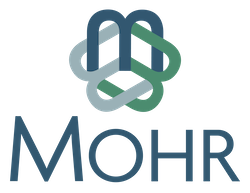
While they ended up having to go into overtime to get it done, lawmakers completed their 2025 required work of passing a two-year state budget for the upcoming biennium.
The 2025 session was a challenging one for disability services. First, from a purely process standpoint, this session was marked by multiple consequential process disruptions. From an unexpectedly vacant seat in the formerly tied MN House, to the sad and sudden passing of a sitting Senator, to disagreements on the technical details of what constitutes a quorum, the start of this session contained many speedbumps that pulled legislators’ attention in many different directions.
Secondly, early in session disability services landed squarely in the spotlight for possible areas to find cost savings in this session of a significant budget shortfall. Gov Walz released his budget proposal in Mid January, and included in it significant reductions to funding for services funded through the Disability Waiver Rate System. MOHR therefore had to hit the ground running this session, jumping into committee testimony and action alerts early in session and maintaining a strong momentum throughout the entire rest of session.
After five months of many legislative proposals and debates, legislators officially adjourned in the early morning hours of June 10th. In the end, MOHR and the broader disability services advocacy community were able to advocate against the passage of the most destabilizing proposals. Future adjustments to disability waiver reimbursement rates will be at a lower level than they would have been under previous law, but not as low as some proposals were suggesting. And some small positive steps forward were passed into law, from options for individuals for more streamlined MnCHOICES reassessments, to supports for providers navigating the 245D licensing process, to a revisiting of the required provider cost reporting process.
The official date for the convening of the 2026 MN legislative session has been set for February 17th, 2026. However it is possible that lawmakers will need to return for a Special Session later this summer or fall depending on whether federal actions spur funding shortfalls in the state budget. In the meantime, MOHR will be keeping up the grassroots advocacy momentum over the summer and fall months. We are grateful for the many MOHR members who stepped up to meet this session’s call for advocacy, and look forward to more grassroots activities together in the coming months.
